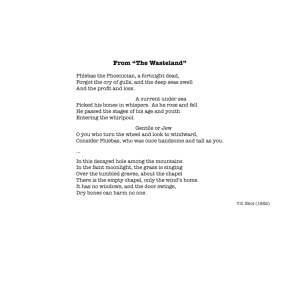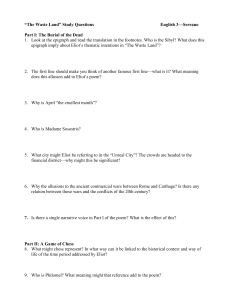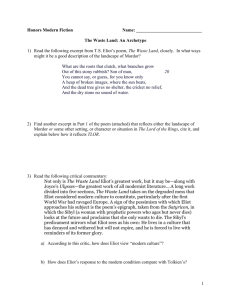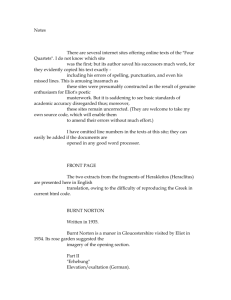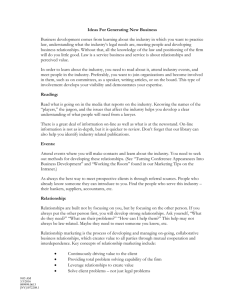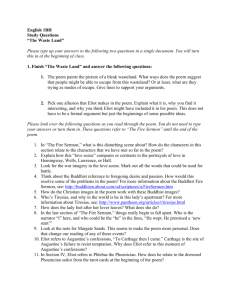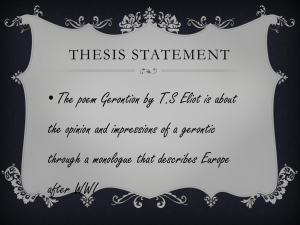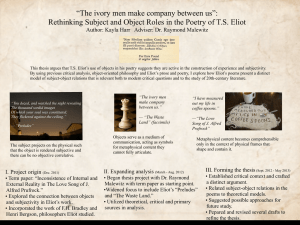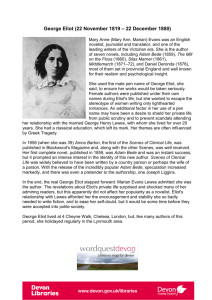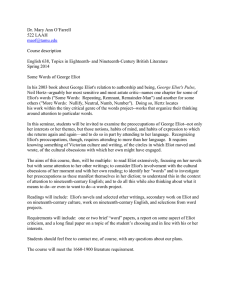Jake Svitek
advertisement
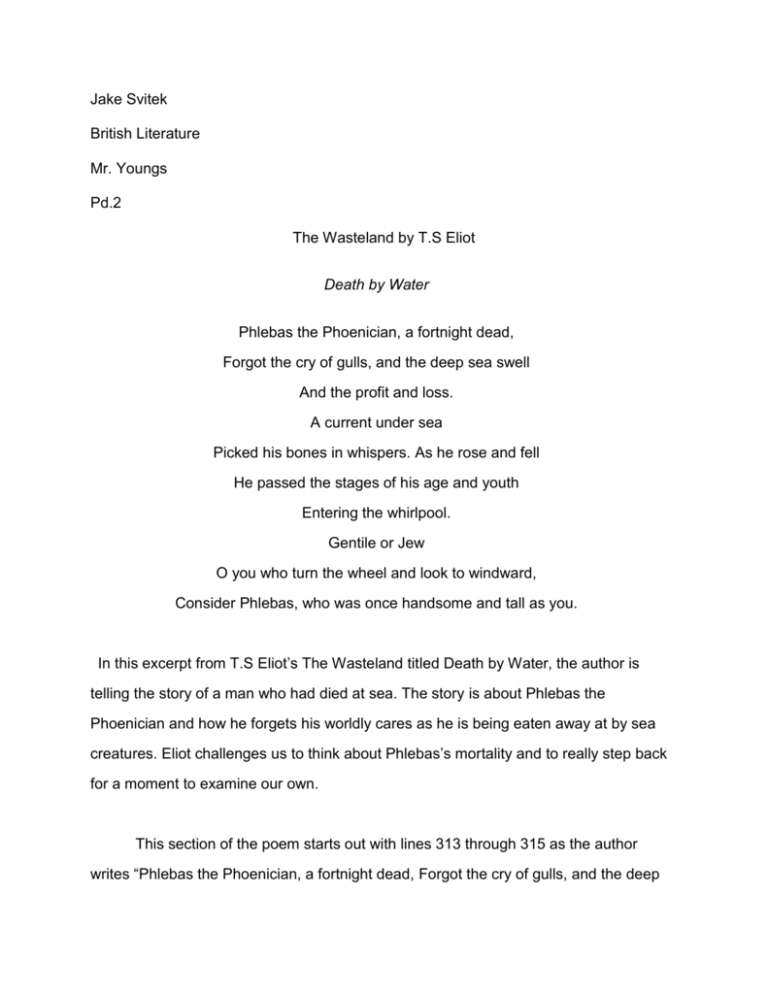
Jake Svitek British Literature Mr. Youngs Pd.2 The Wasteland by T.S Eliot Death by Water Phlebas the Phoenician, a fortnight dead, Forgot the cry of gulls, and the deep sea swell And the profit and loss. A current under sea Picked his bones in whispers. As he rose and fell He passed the stages of his age and youth Entering the whirlpool. Gentile or Jew O you who turn the wheel and look to windward, Consider Phlebas, who was once handsome and tall as you. In this excerpt from T.S Eliot’s The Wasteland titled Death by Water, the author is telling the story of a man who had died at sea. The story is about Phlebas the Phoenician and how he forgets his worldly cares as he is being eaten away at by sea creatures. Eliot challenges us to think about Phlebas’s mortality and to really step back for a moment to examine our own. This section of the poem starts out with lines 313 through 315 as the author writes “Phlebas the Phoenician, a fortnight dead, Forgot the cry of gulls, and the deep sea swell And the profit and loss”. In these three lines the author is saying that the character has died and in doing so he becomes completely immune to worldly things as insignificant as the sound of seagulls but also things like making money. In that very moment as he looses his life all the things that have been relevant to his life almost cease to exist as he fades away from the world and all of its cares. Next, there are lines 116 though 119. “A current under sea Picked his bones in whispers. As he rose and fell He passed the stages of his age and youth Entering the whirlpool”. This passage could be interpreted to mean that as the mans body is being picked away and destroyed by the sea the mans morality is still there. Even though he is just a floating pile of lifeless flesh his years of existence were still significant in one way or another. This really makes the reader examine life and how truly significant and important it is as well as the incredible amount of value that it holds. Finally, this section of the poem closes off with lines 120 through 122. “Gentile or Jew O you who turn the wheel and look to windward, Consider Phlebas, who was once handsome and tall as you”. In these lines, Eliot is referring to the fact that all people will die. He makes a reference to Christians and Jews to point out the fact that it doesn’t matter what you believe at some point in time your existence on earth will end. He then goes on to end this part of the poem by comparing Phlebas to us as readers. Again, Eliot is trying to make us take a step back and really put some thought into our existence and what it means. He is essentially saying that what has happened to the character of the poem could and even some day will be us. This excerpt from The Wasteland is based around the concept of morality and its significance. Eliot tells a short and simple story of a man who has simply done nothing other than die. However, in doing so Phlebas has showed us that life is limited and the humanity we have is a very valuable thing.
